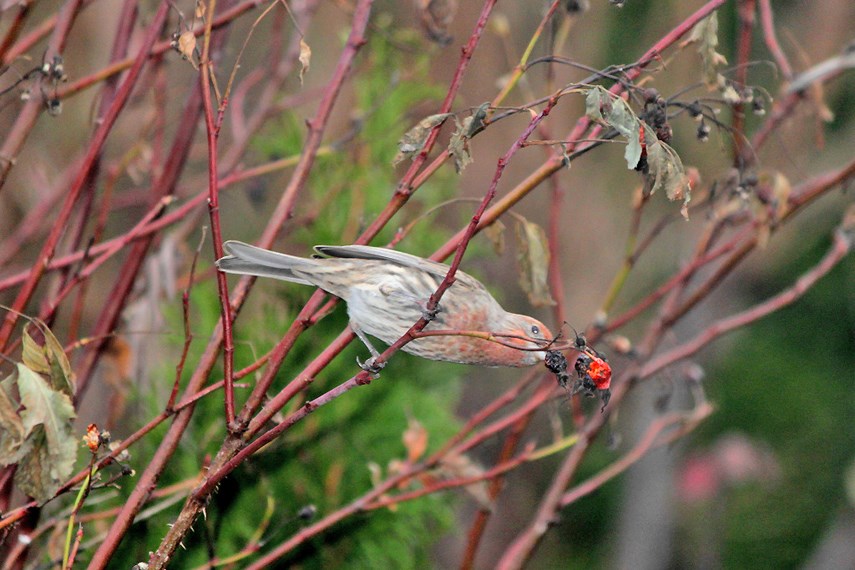As a dedicated food gatherer and preserver, I understand how much energy goes into the tasty morsels I tuck into my pocket for snacks when I am burning calories in the mountains in the winter.
There are emails, texts and phone calls trying to track down the sweetest organic fruits, whole afternoons and many evenings pitting cherries, cutting figs, apples and pears; hours standing over a hot stove canning peaches and time spent creating safe storage places for the jars to avoid freezing or damage in case of an earthquake.
It takes a lot of time.
Our feathered friends don’t have the option of dashing off to the store for groceries. When I see the seed head on the grasses and perennials or berries on trees and shrubs, I think of what a bounty this is for the birds.
I wish more commercial garden maintenance crews would take on the task of educating homeowners (or perhaps vice versa) on the value of creating gardens that are places of sanctuary for the creatures that are meant to live here and help keep the world functioning.
What I too often see is humans stripping away every bit of organic material that falls from the trees, or rises from the earth, packing it into a truck or plastic cans and using fossil fuel to dispense with it.
Not only is this a waste of time and energy, but it is also like destroying an art piece just as it is about to be completed.
I sometimes see Song sparrows and Dark Eyed Juncos feasting on aster, liatris, echinacea and rudebeckia seeds, and House Finches eating the hips of Rosa Nutkana. Wouldn’t it be lovely to have these birds, as well as Chickadees, Pine Siskins, Goldfinches, and Song sparrows spending time in your garden instead of either spending your hard-earned dollars or your weekends removing precious material from your garden that birds count on for survival?
And if you do decide to cut back on the needless garden labour (and using fossil fuel to send it away) you may see Varied Thrushes, Spotted Towhees, Fox Sparrows, and American Robins scratching around finding slugs, spiders, beetles, centipedes and millipedes (many of the insects you spend time and energy trying to get rid of) and nesting material in the leaf litter left in the garden.
So, let’s imagine spending less time and money doing needless chores in the garden, resulting in a healthier quieter city with more natural balance.
Seems like a win-win situation to me.
Heather Schamehorn is a certified residential landscape designer, educator, sustainability advocate and acupressure therapist. You can contact her at perennialpleasures.ca.



